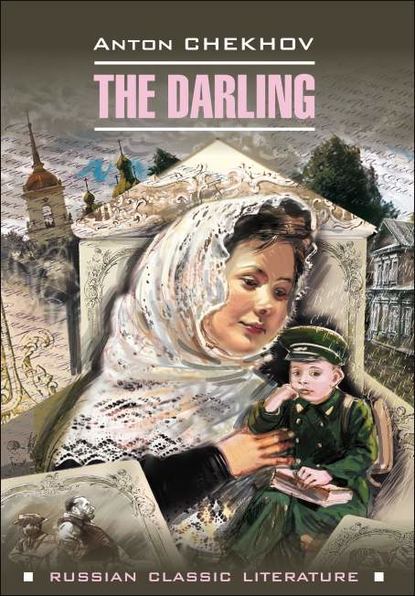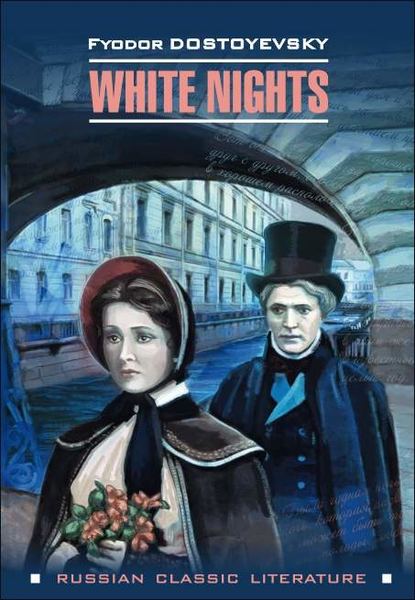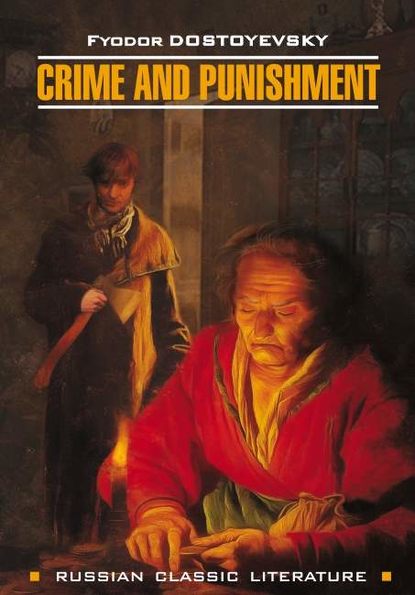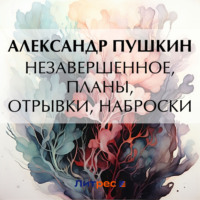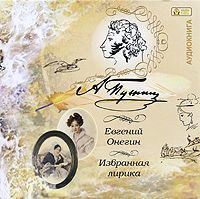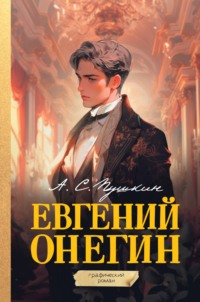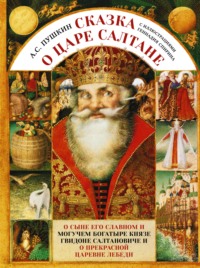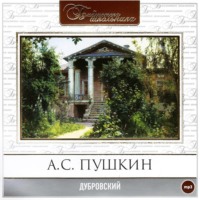The bronze Horseman / Медный всадник. Книга для чтения на английском языке
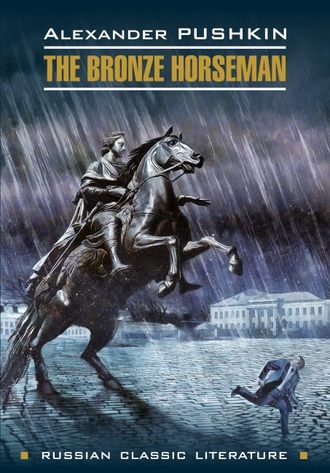
Полная версия
The bronze Horseman / Медный всадник. Книга для чтения на английском языке
Жанр: стихи и поэзиярусская классикаизучение языкованглийский языклексический материалтекстовый материалсерьезное чтениезнания и навыкиcтихи, поэзиякниги для чтения на английском языке
Язык: Английский
Год издания: 2018
Добавлена:
Серия «Русская классическая литература на иностранных языках (Каро)»
Настройки чтения
Размер шрифта
Высота строк
Поля

Alexander Pushkin / Александр Пушкин
The Bronze Horseman / Медный всадник. книга для чтения на английском языке
© КАРО, 2018
The Bronze Horseman
(A Petersburg Tale)
Translated by Oliver Elton
Foreword
‘The occurrence related in this tale is based on fact. The details of the flood are taken from the journals of the day. The curious may consult the information collected by V. I. Berkh’.
Introduction
There, by the billows desolate, He stood, with mighty thoughts elate, And gazed, but in the distance onlyA sorry skiff on the broad spate Of Neva drifted seaward, lonely.The moss-grown miry bank with rareHovels were dotted here and thereWhere wretched Finns for shelter crowded;The murmuring woodlands had no shareOf sunshine, all in mist beshrouded.And thus He mused: “From here, indeedShall we strike terror in the Swede?And here a city by our laborFounded, shall gall our haughty neighbor;“Here cut” – so Nature gives command —“Your window[1] through on Europe; standFirm-footed by the sea, unchanging!Ay, ships of every flag shall comeBy waters they had never swum,And we shall revel, freely ranging.” A century – and that city young,Gem of the Northern world, amazing,From gloomy wood and swamp upspring,Had risen, in pride and splendor blazing.Where once, by that low-lying shore,In waters never known beforeThe Finnish fisherman, sole creature,And left forlorn by stepdame Nature,Cast ragged nets, – today, alongThose shores, astir with life and motion,Vast shapely palaces in throngAnd towers are seen: from every ocean,From the world’s end, the ships come fast,To reach the loaded quays at last.The Neva now is clad in graniteWith many a bridge to overspan it;The islands lie beneath a screenOf gardens deep in dusky green.To that young capital is droopingThe crest of Moscow on the ground,A dowager in purple, stoopingBefore an empress newly crowned. I love thee, city of Peter’s making;I love thy harmonies austere,And Neva’s sovran waters breakingAlong her banks of granite sheer;Thy tracery iron gates; thy sparkling,Yet moonless, meditative gloomAnd thy transparent twilight darkling;And when I write within my roomOr, lampless, read, – then, sunk in slumber,The empty thoroughfares, past number, Are piled, stand clear upon the night;The Admiralty spire is bright;Nor may the darkness mount, to smotherThe golden cloudland of the light,For soon one dawn succeeds anotherWith barely half-an-hour of night.I love thy ruthless winter, loweringWith bitter frost and windless air;The sledges along Neva scouring;Girls’ cheeks – no roses so bright and fair!The flash and noise of balls, the chatter;The bachelor’s hour of feasting, too;The cups that foam and hiss and spatter,The punch that in the bowl burns blue.I love the warlike animationOn playing-fields of Mars; to seeThe troops of foot and horse in station,And their superb monotony;Their ordered, undulating muster;Flags, tattered on the glorious day;Those brazen helmets in their lusterShot through and riddled in the fray.I love thee, city of soldiers, blowingSmoke from thy forts: thy booming gun; – A Northern empress is bestowingUpon the royal house a son!Or when, another battle won,Proud Russia holds her celebration;Or when the Neva breaking freeHer dark blue ice bears out to seaAnd scents the spring, in exultation. Now, city of Peter, stand thou fast,Foursquare, like Russia, vaunt thy splendor!The very element shall surrenderAnd make her peace with thee at last.Their ancient bondage and their rancorousThe Finnish waves shall bury deepNow vex with idle spite that cankersOur Peter’s everlasting sleep! There was a dreadful time, we keepStill freshly on our memories painted;And you, my friends, shall be acquaintedBy me, with all that history:A grievous record it will be.I
O’er darkened Petrograd there rolledNovember’s breath of autumn cold,And Neva with her boisterous billowSplashed on her shapely bounding wallAnd tossed in restless rise and fallLike a sick man upon his pillow.Twas late, and dark had fallen; the rainBeat fiercely on the window-pane;A wind that howled and wailed was blowing.Twas then that young Evgeny cameHome from a party – I am goingTo call our hero by that name,For it sounds pleasing, and moreoverMy pen once liked it; why discoverThe needless surname? – True, it mayHave been illustrious in past ages,– Rung, through tradition, in the pagesOf Karamzin; and yet, todayThat name is never recollected,By Rumour and the World rejected.Our hero – somewhere – served the State;He shunned the presence of the great;Lived in Kolomna; for the fateCared not of forbears dead and rotten,Or antique matters long forgotten.So, home Evgeny came, and tossedHis cloak aside; undressed; and sinkingSleepless upon his bed, was lostIn sundry meditations – thinkingOf what? – How poor he was; how painAnd toil might some day hope to gainAn honored, free, assured position;How God, it might be, in additionWould grant him better brains and pay.Such idle folk there were, and they,Lucky and lazy, not too brightlyGifted, lived easily and lightly;And he – was only in his secondYear at the desk. He further reckonedThose still the ugly weather held;That still the river swelled and swelled;That almost now from Neva’s eddyThe bridges had been moved already;That from Parasha he must beParted for some two days, or three.And all that night he lay, so dreaming,And wishing sadly that the galeWould bate its melancholy screamingAnd that the rain would not assailThe glass so fiercely… But sleep closesHis eyes at last, and he reposes, But see, the mists of that rough nightThin out, and the pale day grows bright;That dreadful day! – For Neva, leapingSeaward all night against the blastWas beaten in the strife at last,Against the frantic tempest sweeping;And on her banks at break of dayThe people swarmed and crowded, curious,And reveled in the towering sprayThat spattered where the waves were furious.But the wind driving from the bayDammed Neva back, and she recedingCame up, in wrath and riot speeding;And soon the islands flooded lay. Madder the weather grew, and everHigher upswelled the roaring riverAnd bubbled like a kettle, and whirledAnd like a maddened beast was hurledSwift on the city. And things routedFled from its path, and all about itA sudden space was cleared; the flowDashed in the cellars down below;Canals above their borders spouted.Behold Petropol floating lieLike Triton in the deep, waist-high! A siege! The wicked waves, attackingClimb thief-like through the windows; backing,The boats sternforemost smite the glass;Trays with their soaking wrappage pass;And timbers, roofs, and huts all shattered,The wares of thrifty traders scattered,And the pale beggar’s chattels small,Coffins from sodden graveyards – allSwim in the streets! And contemplatingGod’s wrath, the folk their doom are waiting.All will be lost; ah, where shall theyFind food and shelter for today?The glorious emperor, now departed,In that grim year was sovereignOf Russia still. He came, sick-hearted,Out on his balcony, and in painHe said: “No Tsar, with God, is masterOver God’s elements!” In thoughtHe sat, and gazed on the disasterSad-eyed, and on the evil wrought;For now the squares with lakes were studded,Their torrents broad the streets had flooded,And now forlorn and islanderThe palace seemed. The emperor saidOne word: – and see, along the highwaysHis generals[2] hurrying, through the byways!From city’s end to end they spedThrough storm and peril, bent on savingThe people, now in panic ravingAnd drowning in their houses there. New-built, high up in Peter’s SquareA corner mansion then ascended;And where its lofty perron endedTwo sentry lions stood at guardLike living things, and kept their wardWith paw uplifted. Here, bare-headed,Pale, rigid, arms across his breast,Upon the creature’s marble crestSat poor Evgeny. But he dreadedNought for himself; he did not hearThe hungry rollers rising nearAnd on his very footsoles plashing,Feel on his face the rainstorm lashing,Or how the riotous, moaning blastHad snatched his hat. His eyes were fastFixt on one spot in desperationWhere from the deeps in agitationThe wicked waves like mountains rose,Where the storm howled, and round were drivenFragments of wreck… There, God in Heaven!Hard by the bay should stand, and close,Alas, too close to the wild water,A painless fence, a willow-tree,And there a frail old house should beWhere dwelt a widow, with a daughterParasha – and his dream was she!His dream – or was it but a vision,All that he saw? Was life alsoAn idle dream which in derisionFate sends to mock us here below? And he, as though a man enchantedAnd on the marble pinned and plantedCannot descend, and round him lieOnly the waters. There, on high,With Neva still beneath him churning,Unshaken, on Evgeny turningHis back, and with an arm flung wide,Behold the Image sit, and rideUpon his brazen horse astride!II
But now, with rack and ruin satedAnd weary of her insolenceAnd uproar, Neva, still elatedWith her rebellious turbulence,Stole back, and left her booty strandedAnd unregarded. So a banditBursts with his horde upon a villageTo smash an slay, destroy and pillage;Whence yells, and violence, and alarms,Gritting of teeth, and grievous harmsAnd wailing’s; then the evildoersRush home; but dreading the pursuersAnd sagging with the stolen loadThey drop their plunder on the road. Meanwhile the water had abatedAnd pavements now uncovered lay;And our Evgeny, by dismayAnd hope and longing agitated,Sore-hearted to the river sped.But still it lay disquietedAnd still the wicked waves were seethingIn pride of victory, as thoughA flame was smoldering below;And heavily was Neva breathingLike to a horse besprent with foamWho gallops from the battle home. Evgeny watches, and descryingBy happy chance a boat, goes bluingTo hail the ferryman; and he,Unhired and idle, willinglyConvoys him for a threepence, plyingThrough that intimidating sea.The old tried oarsman long contendedWith the wild waters, hour by hour,Sunk in the trough, the skiff descendedMid rollers, ready to devourRash crew and all – at last contrivingTo make the farther shore. Arriving,Evgeny – evil is his lot! —Runs to the old street, – and knows it not.All, to his horror, is demolished,Leveled or ruined or abolished.Houses are twisted all awry,And some are altogether shattered,Some shifted by the seas; and scatteredAre bodies, flung as bodies lieOn battlefields. Unthinkingly,Half-fainting, and excruciated,Evgeny rushes on, awaitedBy destiny with unrevealedTidings, as in a letter sealed. He scours the suburb; and discerningThe bay, he knows the house is near;And then stops short, ah, what is here?Retreating, and again returning,He looks – advances – look again.‘Tis there they dwelt, the marks are plain;There is the willow. Surely yonderThe gate was standing, in the past;Now, washt away! No house! – O’ercastWith care, behold Evgeny wanderForever rounds and rounds the place,And talk aloud, and strike his faceWith his bare hand. A moment after,He breaks into a roar of laughter. The vapors of the night came downUpon the terror-stricken town,But all the people long debatedThe doings of the day, and waitedAnd could not sleep. The morning lightFrom pale and weary clouds gleamed brightOn the still capital; no tracesNow of the woes of yesternight!With royal purple it effacesThe mischief; all things are proceedingIn form and order as of old;The people are already treading,Impassive, in their fashion, cold,Through the cleared thoroughfares, inheeding;And now official folk forsakeTheir last night’s refuge, as they makeTheir way to duty. Greatly daring,The huckster now takes heart, unbarringHis cellar, late the prey and sackOf Neva, – hoping to get backHis heavy loss and wasted laborOut of the pockets of his neighbor.The drifted boats from each courtyardAre carried. To a certain bard,A count, a favorite of heavenTo one Khvostov, the theme was givenTo chant in his immortal songHow Neva’s shores had suffered wrong. But my Evgeny, poor, sick fellow! —Alas, the tumult in his brainHad left him powerless to sustainThose shocks of terror. For the bellowOf riotous winds and Neva nearResounded always in his ear;A host of hideous thoughts attacked him,A kind of nightmare rent and racked him,And on he wandered silently;And as the week, the month, went by,Never came home. His habitation,As time ran out, the landlord took,And leased the now deserted nookFor a poor poet’s occupation. Nor ever came Evgeny homeFor his belongings; he would roam,A stranger to the world; his rationA morsel tendered in compassionOut of a window; he would trampAll day, and on the quay would campTo sleep; his garments, old and fraying,Were all in tatters and decaying.And the malicious boys would peltThe man with stones; and of the feltThe cabman’s whiplash on him flicking;For he had lost the skill of pickingHis footsteps, – deafened, it may be,By fears that clamored inwardly.So, dragging out his days, ill-fated,He seemed like something mistreated,No beast, nor yet of human birth,Neither a denizen of earthNor phantom of the dead. BelatedOne night, on Neva wharf he slept.Now summer days toward autumn crept;A wet and stormy wind was blowing,And Neva’s sullen waters flowingPlashed on the wharf and muttered thereComplaining – beat the slippery stairAs suitors beat in supplicationUnheeded at a judge’s door.In gloom and rain, amid the roarOf winds, – a sound of desolationWith cries of watchmen interchangedAfar, who through the darkness ranged, —Our poor Evgeny woke; and dounted,By well-remembered terrors haunted,He started sharply, rose in haste,And forth upon his wanderings paced; – And halted on a sudden, staringAbout him silently, and wearingA look of wild alarm and awe.Where had he come? For now he sawThe pillars of that lofty dwellingWhere, on the perron sentinelling,Two lion-figures stand at guardLike living things, keep watch and wardWith lifted paw. Upright and glooming,Above the stony barrier looming,The Image, with arm flung wide,Sat on his brazen horse astride.[3] And now Evgeny, with a shiverOf terror, felt his reason clear.He knew the place, for it was hereThe flood had gamboled, here the riverHad surged; here, rioting in their wrath,The wicked waves had swept a pathAnd with their tumult had surroundedEvgeny, lions, square, – and HimWho, moveless and aloft and dim,Our city by the sea had founded,Whose will was Fate. Appalling thereHe sat begirt with and air.What thoughts engrave his blow! What hiddenPower and authority he claims!What fire in yonder charger flames!Proud charger, whither art thou ridden,Where leanest thou? And where, on whom,Wilt plants thy hoof? – Ah, lord of doomAnd potentate, ‘twas thus, appearingAbove the void, and in thy holdA curb of iron, thou sat’st of oldO’er Russian, on her haunches rearing! About the Image, at its base,Poor mad Evgeny circled, strainingHis wild gaze upward at the faceThat once o’er half the world was reigning.His eye was dimmed, cramped was his breast,His brow on the cold grill was pressed,While through his heart a flame was creepingAnd in his veins the blood was leaping.He halted sullenly beneathThe haughty Image, clenched his teethAnd clasped his hands, as though some devilPossessed him, some dark, power of evil,And shuddered, whispering angrily,“Ay, architect, with thy creationOf marvels… Ah, beware of me!”And then, in wild precipitation He fled.For now he seemed to seeThe awful Emperor, quietly,With momentary anger burning,His visage to Evgeny turning!And rushing through the empty square,He hears behind him as it wereThunders that rattle in a chorus,A gallop ponderous, sonorous,That shakes the pavement. At full height,Illumined by the pale moonlight,With arm outflung, behind him ridingSee, the bronze horseman comes, bestridingThe charger, clanging in his flight.All night the madman flees; no matterWhere he may wander at his will,Hard on his track with heavy clatterThere the bronze horseman gallops still. Thereafter, whensoever strayingAcross that square Evgeny wentBy chance, his face was still betrayingDisturbance and bewilderment.As though to ease a heart tormentedHis hand upon it he would clapIn haste, put off his shabby cap,And never raise his eyes demented,And seek some byway unfrequented. A little island lies in viewAlong the shore; and here, belated,Sometimes with nets a fisher-crewWill moor and cook their long awaitedAnd meagre supper. Hither tooSome civil servant, idly floating,Will come upon a Sunday, boating.That isle is desolate and bare;No blade of grass springs anywhere.Once the great flood has sported, drivingThe frail hut thither. Long surviving,It floated on the water thereLike some black bush. A vessel plyingBore it, last spring, upon her deck.They found it empty, all the wreck;And also, cold and dead and lyingUpon the threshold, they had foundMy crazy hero. In the groundHis poor cold body there they hurried,And left it to God’s mercy, buried.Ruslan and Ludmila
Dedication
For you, queens of my soul, my treasuredYoung beauties, for your sake did IDevote my golden hours of leisureTo writing down, I’ll not deny,With faithful hand of long past agesThe whispered fables… Take them, pray,Accept these playful lines, these pagesFor which I ask no praise… But stay!For my reward – I need not seek it —Is hope: Oh, that some girl should scan,As only one who’s lovesick can,These naughty songs of mine in secret!Prologue
On seashore far a green oak towers,And to it with a gold chain bound,A learned cat whiles away the hoursBy walking slowly round and round.To right he walks, and sings a ditty;To left he walks, and tells a tale… What marvels there! A mermaid sittingHigh in a tree, a sprite, a trailWhere unknown beasts move never seen byMan’s eyes, a hut on chicken feet,Without doors, without windows,An evil witch’s lone retreat;The woods and valleys there are teemingWith strange things… Dawn brings waves that, gleaming,Over the sandy beaches creep,And from the clear and shining waterStep thirty goodly knights escortedBy their Old Guardian, of the deepAn ancient dweller… There a dreadedAnd hated tsar is captive ta’en;There, as all watch, for cloud banks headed,Across the sea and o’er a plain,A warlock bears a knight. There, weeping,A princess sits locked in a cell,And Grey Wolf serves her very well;There, in a mortar, onward sweepingAll of itself, beneath the skiesThe wicked Baba-Yaga flies;There pines Koshchei and lusts for gold…All breathes of Russ, the Russ of oldThere once was I, friends, and the сatAs near him ’neath the oak I satAnd drank of sweet mead at my leisure,Recounted tales to me… With pleasureOne that I liked do I recallAnd here and now will share with all…Canto the First
The ways and deeds of days gone by,A narrative on legend founded… In princely banquet chamber high,By doughty sons and guests surrounded,Vladimir-Bright Sun holds a fete;His daughter is the chosen mateOf Prince Ruslan, and these two linkingIn marriage, old Vladimir’s drinkingTheir health, a handsome cup and greatTo his lips held and fond thoughts thinking.Our fathers ate ’thout haste-indeed,Passed slowly round the groaning tablesThe silver beakers were and ladlesWith frothing ale filled and with mead. Into the heart cheer poured they, truly…The bearers, bowing, solemn-faced,Before the feasters tankards placed;High rose the foam and hissed, unruly…The hum of talk is loud, unceasing;Abuzz the guests: a merry round.Then through the hubbub, all ears pleasing,There comes the gusli’s rippling sound.A hush. In dulcet song and ringingBayan, the bard – all hark him well —Of bride and groom the praise is singing;He lauds their union, gift of Lel[4]. Ruslan, o’ercome by fiery feeling,Of food partakes not; from LudmilaHe cannot tear away his eyes;He flames with love, he frowns, he sighs,At his moustache plucks, filled with tormentAnd, all impatience, counts each moment.Amid the noisy feasters broodThree youthful knights. In doleful moodThey sit there, their great tankards emptyWith downcast eyes, the fare, though tempting,Untouched; the goblets past them sail;They do not seem to hear the taleOf wisdom chanted by Bayan…The luckless rivals of Ruslan,Of love and hate a deadly brewIn their hearts hid, the three are tooO’erwrought for speech. The first of theseIs bold Rogdai of battle fame(’Twas he who Kiev’s boundariesStretched with his blade); the next, the vain,Loud-voiced Farlaf, by none defeatedAt festal board, but tame, most tameMid flashing swords and tempers heated;The last, the Khazar Khan Ratmir,A reckless spirit, aye, and ardent.All three are pale-browed, glum, despondent: The feast’s no feast, the cheer’s no cheer.It’s over, and the teasiers riseAnd flock together. Noise. All eyesAre smiling, all are on the twoYoung newly-weds… Ludmila, tearful,Looks shyly down: her groom is cheerful,He beams… Now do the shades anewEmbrace the earth, e’er nearer creeping,The murk of midnight veils the dome…The boyars, by sweet mead made sleepy,Bow to their hosts and make for home.Ruslan’s all rapture, all elation…What bliss! In his imaginationHis bride caresses he. But thereIs sadness in the warmth of feelingWith which, their happy union sealing,The old prince blesses our young pair. The bridal couch has long been ready;The maid is led to it… It’s night.The torches dim, but Lel alreadyHis own bright lamp has set alight.Love offers – see – its gifts most tender,Its fondest wish at last comes true,On carpets of Byzantine splendourThe jealous covers fall… Do youThe sound of kisses, love’s sweet token,And its soft, whispered words not hear?Does not – come, say – the murmur brokenOf shy reluctance reach your ear?Anticipation fires the spirit,O’erjoyed the groom… But lo! – the airIs rent by thunder, ever nearerIt comes. A flash! The lamp goes out,The room sways, darkness all about,Smoke pours… Fear grips Ruslan, defeatingHis native pluck: his heart stops beating…All’s silence, grim and threatening.An eerie voice sounds twice. There risesUp through the haze a menacingBlack figure… Coiling smoke disguisesIts shape… It vanishes… Now ourPoor groom, on his brow drops of sweat,Starts up. By sudden dread beset,And for his bride – O fateful hour! —With trembling hand gropes anxiously…On emptiness he seizes, sheHas by some strange and evil powerBeen borne away… He’s overcome… Ah, if to be love’s martyr someUnfortunate young swain is fated,His days may well be filled with gloom,But life can still be tolerated.But if in your arms, after yearsOf longing, of desire, of tears,Your bride of but one minute liesAnd then becomes another’s prize,’Tis much too much… Quite frankly, I,Were such my case, would choose to die! But poor Ruslan’s alive and torturedIn mind and heart… O’erwhelmed by news,Just then arrived, of the misfortune,The Prince, enraged, turns on the youth.The whole court summoning, “Ludmila…Where is Ludmila?” thunders he.Ruslan does not respond. “My children!Your merits past high hold I… Free,I beg, my daughter from the clutchesOf evil. I am helpless; such isOld age’s piteous frailty.But though I am too old to do it,Not so are you. Go forth and saveMy poor Ludmila, you’ll not rue it:He who succeeds, shall – writhe, you knave!Why did you not, wretch, base tormentor,Know how to guard your young wife better?Shall have Ludmila for a brideAnd half my fathers’ realm beside!…Who’ll heed my plea?” “I!” says the grieving,Unhappy groom. “I!” shouts Rogdai,And echoed by Farlaf his cryAnd by Ratmir is. “We are leavingStraightway, and pray believe us, sire,We’ll ride around the world entireIf need be. From your daughter partedNot long will you be, never fear.”The old prince cannot speak for tears;His gratitude is mute; sad-hearted,A broken man, at door he standsAnd to them stretches out his hands. All four the palace leave together;Ruslan is ashen-faced, half-dead.Thoughts of his kidnapped bride, of whetherHe’ll ever find the maid, with dreadAnd pain his heart fill. Now the foursomeGet on their restless, chafing horses,And leaving dust clouds in their wake,Away along the Dnieper make…They’re lost to sight, but Prince VladimirStands gazing at the road and triesTo span the distance ever-dimmingAs after them in thought he flies. Ruslan, his mind and memory hazy,Is mute, lost in a kind of trance;Behind him, o’er his shoulder gazing,The picture of young arrogance,Farlaf rides, hand on hip, defiant.Says he: “At last! The taste is sweetOf freedom, friends… When will we meet —The prospect likes me well – a giant?Then will blood pour as passions seetheAnd victims offer to the sabre.Rejoice, my blade! Rejoice, my steed,And lightly, freely prance and caper!” The Khazar Khan, his pulses racing,In saddle dances, for in thoughtHe is the fair young maid embracingWhose love he has for so long sought.The light of hope is in his eye,Now does he make his stallion fly,Now forces him, the good steed teasing,To rear, now gallops him uphill,Now lets him prance about at will. Rogdai is silent; with increasingUnease his heart fills; dark thoughts chillAnd burden him; he is tormentedBy jealousy, and, all calm gone,With hate-glazed eye, like one demented,Stares sullenly at Prince Ruslan. Along a single road the rivalsRode on all through the day untilFrom east poured shades that night’s arrivalBespoke… The Dnieper, cold and still,Is wrapt in folds of mist… The horsesHave need of rest… Not far awayA track lies that another crosses.“’Tis time to part,” the riders say.“Let us chance fate.” So ’tis decided;Each horse is given now its head,And, by the touch of spur unguided,Starts off and moves where ’twill ahead. What do you in the hush of desertAlone, Ruslan? Sad is your plight.Was’t all a dream – the bride you treasured,The terrors of your wedding night?Your helmet pushed down to your browYour strong hands limp, the reins let loose,O’er woods and fields astride your steedYou ride, while faith and hope recedeAnd leave you well-nigh dead of spirit. A cave shows ’fore the knight; he nearsAnd sees a light there. His feet leadHim straight inside. The dark and broadVaults seem as old as nature. Moody,Distraught Ruslan is… In the caveA bearded ancient, his mien graveAnd quiet, sits. A lamp is burningNear him, a book lies on his knee;Engrossed in it, its pages heWith careful hand is slowly turning.“I bid you welcome, knight! At last!”Says he in greeting, smiling warmly.“Here have I twenty long years passedOf my old age, and grim and lonelyThey’ve been… But now has come the dayFor which, foreseeing it, I waited.To meet, we two, my son, were fated,Now sit and hear me out, I pray…Ludmila from you has been taken;You flag, you droop, by hope forsakenAnd faith itself… ’Tis wrong! For briefWith evil and its partner, grief,Will be, I promise, your encounter.Take heart; with strong, sound spirit counterThe blows of fortune, banish woe,And, sword aloft held, northward go! ‘‘He who has wronged you, O my daringYoung stalwart, is old Chernomor.A wizard, he is known to carryYoung maids off to the hills. ’Tis forLong years he’s reigned there. None has everHis castle seen, but through its doorYou’ll pass, I know, and end foreverThe villain’s rule; by your hand heWill perish – so ’tis meant to be!…I may not yield to indiscretionAnd say aught more; your destinyYourself from this day on you fashion.” Our knight falls at the elder’s feetAnd in delight his hand he kisses.The world a bright place seems, and sweetLife is again; forgot distress is…But then the sudden joyful glowHis face leaves, and it pales and darkens.“Do not despair but to me harken,”The old man says. “I know what soDisquiets you: you are in fear ofThe warlock’s love, eh, knight?… Be calmThe truth is, o my youthful hero,That he can do the maid no harm.From sky the stars he’ll pluck, I’ll wager,Or shift the moon that sails on high,But change the law of time and agingHe cannot, hard as he may try.Though he lets none her chamber enterAnd jealous watch keeps at her door,He is the impotent tormentorOf his fair captive, nothing more.While never far from her, he cursesHis lot, and soundly – but, my knight,’Tis time for you to rest: the earth isEnclosed in shadow; it is night.” On soft moss lies Ruslan, a flameBefore him flickering. He yearnsFor soothing sleep, he twists and turnsAnd flings about – but no, ’tis plainThat sleep won’t come. He heaves a sighAnd says: “Nay, Father, sick am IOf soul and cannot sleep for drearyAnd troubled thought. Talk to me, do;With godly speech, I beg of you,Relieve my heart: it aches, it’s weary…I make too bold to ask you this;You, who befriend me, I importune —Speak! Tell me, confidant of fortune:Why came you to this wilderness?” And with a wistful smile replyingTo him, the old man says: “Alas,I have forgot my land!” Then, sighing:“A Finn am I by birth. It wasMy lot to tend the flocks of neighbours,And I would take them off to grazeIn vales on which no stranger’s gazeE’er rested. Carefree midst my laboursDid I remain, and only knew,Besides the woods and streams, what fewJoys poverty could offer to me…Alas! Ahead dark days were looming. “Near where I lived, a lovely flower,One named Nahina, bloomed; of ourYoung maids none lovelier than sheWas there. One morn, a bagpipe blowing,My flocks I grazed where grass was growingIn lush profusion. I could seeA brook wind ’fore me; by it, weavingA garland, sat a dear young lass…Her beauty – ah, ’twas past believing! —Drew and enchanted me, and asI gazed at her I knew I’d seen herBefore… Yes, knight, it was Nahina,’Twas fate had brought me there. The flameOf love was my reward for eyeingThe maid thus brazenly; I cameTo know a passion self-denying:All of its bliss, all of its pain.“Six months sped by… I thought to win herAnd opened up my heart. I said:‘I love thee dearly, sweet Nahina!’But my shy sadness only bredScorn in her who was vain and prideful;She was indifferent to my lot,And said, of all my pain unmindful:‘Well, shepherd mine, I love thee not!’ “I was estranged from all, and gloomyLife seemed. The shady native wood,The games of shepherds – nothing couldMy hurt soothe and bring comfort to meI languished… But the far seas drew me;To leave my homeland sought I thenAnd with a band of fighting menTo brave the ocean’s winds capricious…I hoped to win renown and fameAnd for my own Nahina claim.This planned, according to my wishes,I called upon some boatmen whoJoined with me in a quest for dangerAnd gold. My land, to war a stranger,The clash of steel now heard, and knewThe sound of boat with boat colliding…On, on we sailed, the billows riding,My men and I, by sweet hope led,Both snow and water painting redFor ten long years with gore of foes.As rumour of our prowess spread,The foreign rulers came to dreadOur forays, and their champions choseTo flee our blades. Yes, fierce and heartedOur battles were, and merry, too,And with the men we had defeatedTogether feasted we. But throughThe din of war and merrymakingI heard Nahina’s voice, and forThe sight of her in secret aching,Before me saw my native shore.‘Come, men!’ I cried. ‘Did we not roamThe world enough? Time to go home!‘Neath native eaves we’ll hang our mail;Is’t not, in faith, for this we hanker!’And leaving in our wake a trailOf fear, for Finland we set sailAnd in her waters soon dropped anchor. “Fulfilled were all my dreamings pastThat set my lone heart faster beating.O longed-for moment of our meeting,O blessed hour, you came at last!There, at the feet of my proud beautyI laid my sword and, too, the bootyOf war: pearls, corals, gold. ’Fore her,By jealous womenfolk surrounded,Her one-time playmates, my unboundedLove making me her prisoner,Mute stood I, but Nahina coollyTurned from me, saying with no signThat she would e’er relent: ‘Nay, truly,I do not love thee, hero mine!’ “I do not like to speak of thingsIt is pure agony to think of.E’en now, my son, when at the brink ofI am of death, remembrance bringsFresh sorrow to my long-numb spiritAnd gravely wounds my being whole,And torn by pain, seared by it, wearied,I feel the tears down my cheeks roll. “But hark! In parts I call my home,Amid the northern fishers lone,The art of magic lives. The shaded,Thick-growing forests wrapt in deep,Eternal silence lie and keepThe secrets of the wizards agedWho dwell there and whose minds to questFor wisdom of the loftiestAnd weirdest kind are given. AwesomeTheir powers are: what was and alsoWhat will be they have knowledge of,Life can they snuff and foster love. “And I, love’s mad and avid seeker,In my despair that ne’er grew weaker,By means of magic thought to startIn proud Nahina’s icy heartOf love for me at least a flicker.Toward the murk of woodland freeMy steps in hot impatience turning,The subtle craft of wizardryI spent unnumbered years in learning.Then were the fearsome secrets, soughtBy me with such despair, such yearning,Revealed to my enlightened thought;Of charms and spells I knew the power:Love’s aim achieved – О happy hour!‘Nahina, thou art mine!’ I cried.‘Now shall I have thee for my bride.’But once again by fate defeatedWas I and of my triumph cheated. “Enraptured, with young dreams aglow,Filled with love’s fervour and elation,I loudly chant an incantationAnd on dark spirits call, and lo! —A flash of light, a crash of thunder,And magic whirlwinds start awake,I feel the earth begin to quake,I hear it hum and rumble underMy feet, and there in front of me,The picture of senility,A crone stands. She is bent and shrunken,Her hair is white, her eye is sunkenAnd glazed with age, her head is shaking…And yet, and yet – had I mistakenHer for another? – Nay, O knight;Nahina ’twas!… In doubt, in frightThe horrid vision now I measuredWith unbelieving gaze, my sightMistrusting… ’Thou! Art thou my treasuredNahina? Speak!’ from me the cryBurst forth. ‘Where is thy beauty? WhyHave the gods changed thee so? Have ILong, then, from life and love been parted?’‘For forty years!’ I heard her say.‘Indeed, I’m seventy to-day!…But never mind! So are lives chartedAnd so they pass. Thy spring has flownAnd mine has too. We are, I own,Old, both, but be thou not disheartenedBy fickle youth’s swift passage. True,I’m grey, a trifle crooked too,Less lively and perhaps less charmingThan once I was…’ This in disarmingTones she declared, her voice a squeak.‘Come, do not look, I beg, so tragic…I am – in confidence I speak —Like thee become well versed in magic.’ “A sorceress! What had she said!…Struck dumb was I by the admissionAnd felt a fool, a dunderheadFor all my store of erudition. “But worse by far was that the spellThat I had cast worked far too well.My shrivelled idol flared with passion;She loved me – loved me to obsession!Her grey lips twisted in a smile,In graveyard tones the old hag mutteredThe wildest of avowals, whileI suffered silently, in utterDisgust and loathing, and uponThe ground my eyes kept. She wheezed on,

